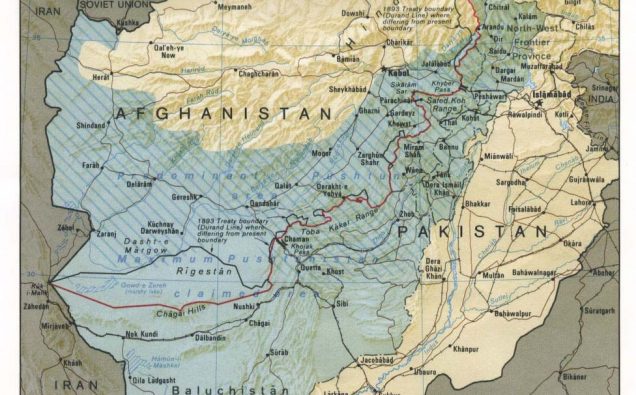
Afghanistan-Pakistan border, Photo: CIA
The United Nations envoy for Afghanistan has underscored the need for the landlocked country to achieve a political settlement with the armed opposition, pointing to an upcoming February meeting between the parties as an opportunity not to be missed.
“We must use the upcoming winter months, when conflict levels tend to decrease, to advance on this issue before the cycle of violence is renewed next spring,” Tadamichi Yamamoto, the Special Representative of the Secretary-General for Afghanistan, told the Security Council.
“I once again call on the Taliban to express a clear willingness to begin negotiations towards a political settlement, and to start the initial dialogue,” he said.
The ‘Kabul Process’ meeting will be held on 1 February 2018, where the Government is expected to present a strategic concept for reaching the settlement.
Afghanistan has been wracked by a string of governance troubles, record opium production, political infighting in Kabul, rise of the ISIS, resurgence of the Afghan Taliban and disputes between neighbors Pakistan and Afghanistan. A deterioration in US-Pakistan relationship is also being seen as a setback to peace efforts in the country.
The upcoming Kabul Process spells out a transition to greater Afghan responsibility and ownership, in both security and civilian areas.
Yamamoto, also the head of the UN Assistance Mission in Afghanistan (UNAMA), informed the 15-member Council of the holding of the parliamentary elections next year, followed by presidential elections in April 2019.
Timely, credible and accepted elections, he elaborated, are vital to maintain constitutional order and keep faith in the representative system of Government.
Above all, he emphasized, the security and women’s political participation are vitally important the three key factors.
Speaking about country’s regional relationships, Yamamoto expressed concern over increased military activities between Afghanistan and neighboring Pakistan, and called on the two countries to find ways to collaborate more effectively to address the issues that affect the populations of both countries.
“I truly hope that empathy for the ongoing suffering of millions of Afghans will move us all to make the efforts necessary to achieve peace and realize the important opportunities that lie beyond a much needed peace agreement,” he said.

















